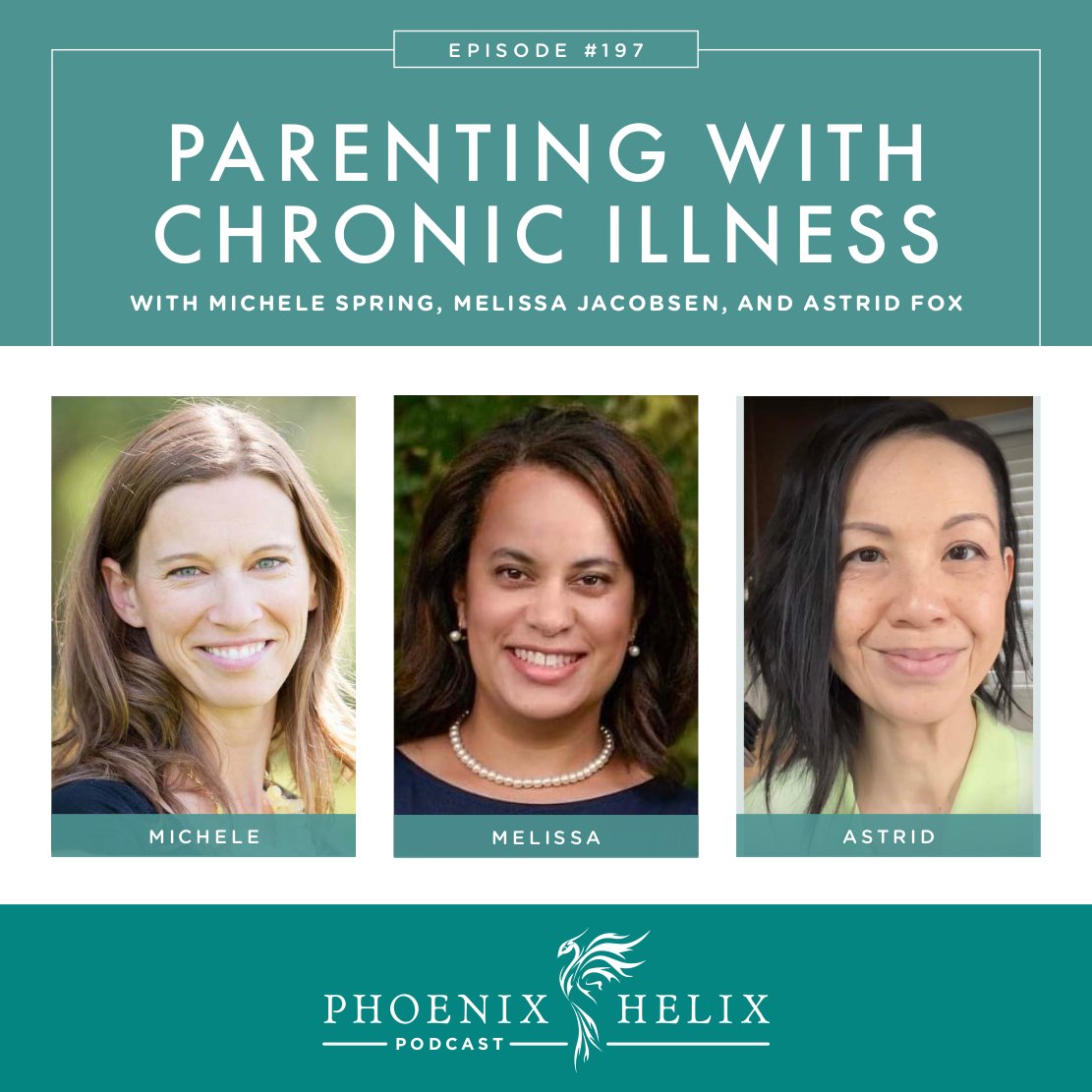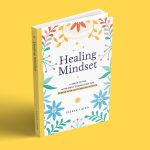How Does Your Autoimmune Diagnosis Impact Your Children?
Autoimmune disease brings a lot of changes to our lives, and as we all know, it doesn’t just impact us alone. It also impacts those we love – friends, family, and children. Today, I’ve invited three parents with autoimmune disease onto the podcast to talk about their experiences. What has been the most challenging part? How have they adapted as parents? How do they talk to their children about their health? And how have their children grown in response? This is a deeply personal conversation, and I’m so grateful to the guests for sharing. I hope it resonates with every parent listening, and helps you know you’re not alone.
Listen to the Show
- Subscribe to my podcast through your favorite podcast app: iTunes, Stitcher, Google, TuneIn, Spotify, Amazon, etc.
- You can also listen to the episode right here through the player below, and if you subscribe to my newsletter you’ll get notified of future episodes.
Podcast: Play in new window | Download
Show Notes
- Intro (0:00)
- Thank You to Our Podcast Sponsor – DNRS (2:20)
- DNRS stands for the Dynamic Neural Retraining System, and it’s a therapy based on neuroplasticity. This simply means that our brains change and adapt to life experiences, sometimes in positive ways, but other times in negative ones.
- With chronic illness, symptoms can actually become wired into our brains, even when the triggers for those symptoms are removed. DNRS is a therapy done at home, that rewires the brain (and body) for health.
- What types of conditions have been helped? Almost any type of chronic inflammation. This includes fibromyalgia, chronic fatigue syndrome, chronic Lyme disease, Long COVID syndrome, multiple chemical sensitivity, multiple food sensitivities, irritable bowel syndrome, mold toxicity, chronic pain, and more.
- What’s common about many of these conditions is that they are often called “mysterious illnesses”, meaning there’s no clear cause or effective treatment. You may have multiple diagnoses on this list, and it’s not uncommon to feel hopeless.
- DNRS is a self-paced online course designed to break this cycle of inflammation and allow your body to recover. Get the course here.
- A Note About Time Stamps for This Episode
- Usually, I’m able to attach a time stamp to different topics discussed in a podcast so you can jump to that point in the interview. In today’s episode, the conversation was very organic and covered a wide variety of topics intertwined with each other. I’ve chosen to summarize the conversation below by topic, but I can’t offer many time stamps. The conversation starts at 4:05.
- Meet Our Guests (4:05)
- Michele Spring has Hashimoto’s and Celiac Disease, and she has two sons (ages 9 and 12). She developed hypothyroidism a few years before having children but was never told it was autoimmune. She got her autoimmune diagnoses about a year after her second child was born. She had a severe flare once she stopped nursing, which led her to look for answers. So, her health issues have been present throughout their childhood, although her health is much better now.
- Melissa Jacobsen has Hashimoto’s, and she has a son and a daughter (ages 8 and 12). She developed thyroid issues during her first pregnancy but didn’t receive an autoimmune diagnosis until a few years later when her symptoms escalated. She had a miscarriage, she developed a palpable lump in her throat, and she suffered from fatigue so severe she would fall asleep at odd times during the day. She went to the doctor and tests revealed she had Hashimoto’s, but the doctor still didn’t offer any treatment. Melissa researched the connection between miscarriages and Hashimoto’s and told the doctor she wanted another child. Through self-advocacy, she got a prescription for thyroid medication and was able to sustain her next pregnancy and have her son. So, Melissa’s health issues have also been present throughout her children’s lives.
- Astrid Fox has ulcerative colitis, and she has two sons (ages 11 and 17). She was diagnosed when they were fairly young: 3 and 9 years old. Long-term stress contributed to her diagnosis. She had been a long-term caregiver for her mother, who had diabetes and eventually went into renal failure. Astrid was 3 months pregnant with her second child when her mother died. She was physically and emotionally depleted but didn’t have time to slow down, recover, or grieve. In addition to being parents of two young children, she and her husband also owned a small business which moved locations during that time. The stress just snowballed. She sees ulcerative colitis as her body screaming for attention and care.
- How Has Autoimmune Disease Changed the Way You Parent?
- Michele: She has to manage her energy now, choosing when and how to expend it. She chooses her battles and doesn’t get drawn into every sibling argument. The family diet has changed as well – they eat mostly paleo and that has required a lot of conversations with the boys, especially when they see how their friends eat differently. She also needs alone time to recharge. She needs to put herself first so that she can stay healthy and be the mother she wants to be.
- Melissa: Stress is a big flare trigger for Melissa, so prioritizing rest is part of their family life, for both herself and her children. She’ll sometimes call a “mental health day” for the family and the children will stay home from school and together they’ll enjoy a stress-free day. If her children don’t sleep well, she’ll let them sleep in and drive them to school later. As a family, they eat mostly paleo, but she does allow her children some non-paleo foods because she doesn’t want them to be restricted unnecessarily. But her children also eat a lot of fruits and vegetables, focusing on the rainbow. They aren’t picky eaters and eat far more vegetables than sweets.
- Astrid: Health became a necessary focus of the family. She was at her sickest when her children were younger. She went into remission several years ago and tried to make up for lost time, but ended up doing too much. Now, she tries to strike a balance between knowing her limits and giving herself grace, while also enjoying the freedom of a life that doesn’t revolve 100% around illness.
- Difficult Parenting Memories
- Michele: She remembers sitting in the backyard watching her children play when they were toddlers. They said, “Mommy, come play!” She was so intensely tired that she couldn’t do it. She couldn’t get up from her chair. Her mother had died from cancer before her children were born, and Michele always grieved the fact that her mother never got to meet them. In that moment, Michele thought, “I’m alive, but I still can’t fully interact with my children and be the Mom I want to be.” That was a pivotal moment for her. She knew something needed to change. She sought the help of a functional medicine practitioner and got her autoimmune diagnoses and a treatment plan. She also started the Paleo Autoimmune Protocol (AIP).
- Melissa: Reading has always been important to Melissa and instilling a love of reading in her children. When her daughter was young, Melissa worked full-time outside the home, and bedtime stories were a ritual she and her daughter shared. It was their special time together. Pre-diagnosis, when her Hashimoto’s symptoms were highest, there were nights she couldn’t do it. Partly it was fatigue, but the lump in her throat also made it difficult to talk. That was a huge loss for both Melissa and her daughter, and inspired her to seek help.
- Astrid: During her most severe flares, she was so exhausted that she slept 18 hours a day. She only got out of bed to feed the children and do basic self-care. During that time, she did enemas as a way to soothe her inflamed colon, and one day, she was lying on on the bathroom floor, wrapped up in blankets, with her legs up over the bathtub. Her youngest son who was 3 at the time, came into the bathroom and snuggled up next to her. She didn’t want him to see her that way, but it was also a bittersweet moment, because he didn’t see a sick mommy. He saw a comfortable place to snuggle and a chance to spend time together.
- Beautiful Parenting Memories
- Michele: When her oldest son was 9 years old, they climbed a mountain together in Colorado. Being able to recover from disabling fatigue and eventually share this experience with her son is one of the highlights of her life. It was a direct result of the work she’s done to improve and support her autoimmune health.
- Melissa: About 6 months ago, she started experiencing severe joint pain, and there was a fear she might be developing rheumatoid arthritis. While she was waiting for the test results to come back, she tightened up her diet, removing foods that she knew may be contributing to the inflammation. When the test came back negative, she screamed with joy. Her son gave her a big hug, and said, “Mom, I’m so proud of you. Everything you’re doing is working. You’re getting so much better.” It’s a precious memory for two reasons: it showed her son’s empathy, and it also reminded her that when she takes care of her health, she’s also taking care of her family. They want her to be well, and she wants them to be proud of her.
- Astrid: When she was experiencing severe colitis flares, she sometimes couldn’t handle food at all and needed an elemental style diet to get some nourishment until her colon calmed down. She was shopping for the elemental diet powder with her children and she said to her oldest boy, “You know, some day I may not need these supplements any more. I don’t know when, but I hope it will be soon.” He replied with confidence: “You’re right! You won’t need them forever. By October, you won’t need them any more.” She doesn’t know where he got that date, but she remembered feeling so encouraged that he believed she would regain her health, and that compassion is something she’s very proud to see in her children.
- Thank You to Our Podcast Sponsor – ShopAIP (32:02)
- Today, I’m highlighting their meat and seafood bars. If you’re a parent, you are often called upon to do a lot of chauffeuring. It’s so helpful to have healthy, satiating snacks that are light and portable to carry with you. ShopAIP has a selection of AIP-friendly bars that fill that need perfectly. Chomps grass-fed beef sticks come in two AIP-friendly flavors: Sea Salt & Italian. Wild Zora has three AIP-friendly bars: Mediterranean Lamb, Italian Beef, and Apple Pork. Epic Bar has numerous AIP flavors including Bison Bacon Cranberry, Beef Apple Bacon, Smoked Maple Salmon, and others. You can find all of these and more at ShopAIP.
- ShopAIP is an online store dedicated to the Paleo Autoimmune Protocol. With hundreds of items for the elimination phase of the AIP, and products labeled by reintroduction category as well. You can find protein bars, sauces and condiments, AIP-friendly spices, cooking and baking ingredients, waffle and pancake mix, delicious snacks, and more.
- If you’re a first-time customer, use the code PHOENIX for 10% off your order. Purchase here.
- How Have Your Children Grown in Response?
- Michele: Her boys are very empathetic – if they see someone struggling, their impulse is to help. They also have a lot of health knowledge for their age as well as an empowered mindset, and they’ve been able to use that when navigating their own health issues. They embody resilience.
- Melissa: They’re very empathetic and compassionate. They also love to help, contributing to the household by doing regular chores because they know Melissa can’t do everything herself. They’re also independent.
- Astrid: They’re much more aware of health, and what diet and lifestyle practices detract or add to health. They are accustomed to having something always brewing at home (fermented foods and sprouts). The brothers have a strong bond that was created when the older boy needed to care for the younger brother when Astrid was very sick. That bond remains now that Astrid’s healthy. They’re also both very empathetic people and are wise for their age.
- Has Your Health Knowledge Helped Your Children’s Health Issues?
- Michele: The whole family (she, her husband, and both boys have celiac disease). So, the children were already used to eating differently than their friends. However, Michele believes that her health crisis with Hashimoto’s prepared her oldest son for his recent diagnoses of Type 1 diabetes. She and her family had already learned the tools and strategies he would now need. Even when he was in the hospital, he didn’t see himself as a victim. Instead, he started to think about ways he could help other children in the same situation. He had seen his mother recover her health, so he expected that he would as well. When they got home, he didn’t fight the insulin shots or the dietary changes. He independently chooses lower-carb snacks to keep his blood sugar stable, and he knows sleep and exercise matter as well. The same is true for her younger son who has eczema. He knows how to make choices that support his skin health.
- Melissa: Her son was diagnosed with autism at age 3. It’s not severe autism – his challenges are primarily social and emotional. The things she does to support her autoimmune health supports him as well (prioritizing sleep, nutrition, stress management, and mental health.) She always tries to approach it as a teaching moment when she explains these choices to her children. She wants them to know how these things impact their own health, now and in the future.
- Astrid: Her youngest son recently started experiencing stomach discomfort after eating. He’s been tested by the doctor, and for now all tests came back clear. So, they’re using the tools they already know to soothe his stomach. Astrid wonders how much is connected to pandemic stress. She’s currently taking a nutritional therapy course, which is perfect timing because she shares what she learns with both of her children. Her coursework covers the stress-digest connection in addition to nutrition. And when it comes to the medical tests, they’re the same ones Astrid has been through herself, so they’re not intimidating. The biggest comfort is that Astrid knows that her children have seen her thrive and overcome complex health issues, while still being human and doing her best, and they’ve learned that same approach themselves. Her hope is that they are developing tools that will serve them throughout their lives.
- How Do You Talk To Your Children About Your Health?
- Michele: Her children were so young when her health was at its worst that they didn’t know that “tired mommy” wasn’t normal, and while she never tried to hide her symptoms, they have no memory of that time. Now, she has much more energy and her “bad days” aren’t frequent. She’s honest about how she feels on those days, but most of their conversations about health are more about how they live: why they eat the way they do, why they practice stress relief techniques as a family, why Michele meditates every day. They understand the goal is to prevent that type of health crisis from happening again. With her son’s recent diabetes diagnosis, he did express some fear, but due to his age, if Michele’s not afraid, he’s not afraid. Her confidence that they can manage his diabetes gives him confidence. Michele learned that worry doesn’t change outcomes, it just causes stress that leads to Hashimoto’s flares. So, she consciously chooses not to worry and to take actions that are within her control instead.
- Melissa: Melissa never tried to hide her symptoms, but she also didn’t share much when the children were very young, because she knew they wouldn’t be able to understand. However, now they do have open conversations. Melissa isn’t in remission and is experiencing new symptoms. That led to new medical testing and also a return to the paleo autoimmune protocol and a higher priority on sleep and stress management. She prepared her children for the changes to their lifestyle and also let them know what she expected of them. She wanted to prevent as much complaining as possible, and it helped! Her daughter might still complain at mealtime sometimes, but she’ll also sit on the floor and meditate with Melissa. Her son helps cook every Wednesday. They want Melissa to be well, and having these open conversations unites them as a family. But at the same time, they’re still kids, so she doesn’t expect them to completely understand, and that’s okay too.
- Astrid: She’s not someone who can hide how she feels, so during flares in the past, her children knew when was struggling. They asked questions, and she gave honest answers appropriate to their age. She didn’t share all the gory details, but she let them know if she was tired or in pain. Now that she’s in remission, those conversations are less frequent, but prior to this podcast, Astrid interviewed her children and asked what they remembered. Her youngest son doesn’t remember much, but her oldest son said he felt like he was kept in the dark. He didn’t know the cause of her symptoms and felt scared and helpless. That was hard for Astrid to hear, but she explained that back then, she didn’t know either. She didn’t have answers to share. It was a good conversation, and Astrid believes in open communication. As they navigate the youngest son’s mysterious stomach symptoms, he knows that other people struggle too, and he doesn’t need to hide how he feels. Both of her children know that everyone has struggles, whether physical or emotional, and it’s wonderful to help each other.
- Leaving Perfectionism Behind
- All the guests today spoke about how their children have grown in empathy and resilience in response to living with a parent with chronic illness, but they’re also still kids. Smiling and laughing one moment, but also complaining or having emotional outbursts too. We’re all human, including our kids. It’s not about being perfect.
- Similarly, if you’re really struggling with your health right now, don’t judge yourself for not being the parent you’d like to be. Your children will learn from everything you do to care for yourself and see that your are doing your best. When you feel low, try to talk to yourself as you would a good friend – with love and compassion instead of self-judgment.
- Resource podcasts:
- Outro (1:05:15)
- Michele Spring is the woman behind Thriving Autoimmune. She also has an active YouTube Channel.
- Melissa Jacobsen is a member of my Facebook community, and she welcomes friend requests from anyone interested in learning more about how to manage your own chronic illness in combination with your children’s social/emotional issues.
- Astrid Fox is the woman behind Heal Me in the Kitchen. You can connect with her through Instagram.
- Eileen (your podcast host) is the author of multiple books, written to help people thrive with autoimmune disease. Learn more on the Books Page.
- If you like this podcast, follow or subscribe through your favorite podcast app. You can also subscribe to Eileen’s biweekly newsletter.
- Check out the entire archive of podcast episodes.
You May Also Be Interested In
Spreading the Word
If you like the podcast, please leave a positive review in iTunes. It would mean the world to me, and also helps others find the podcast. Here are some quick instructions using your iPhone:
- If you are already subscribed to my podcast: (1) Click the purple podcast icon. (2) At the bottom of the screen, click Library. (3) At the top of the screen, click Shows. (4) Click the Phoenix Helix podcast image. (5) Scroll down the page, and you’ll see Ratings and Reviews. Scroll down a little bit more and click on Write a Review. This will bring up the review screen. Tap 5 stars (if you love the podcast), and then click in the title box, and it will bring up the keyboard. Enter a title and short review. (6) Click Send in the upper right corner. (7) Thank you! Positive reviews give the podcast a higher search ranking in iTunes, helping people find it and letting them know it’s a quality podcast and worth their time to listen.
- If you haven’t subscribed to my podcast: (1) Click the purple podcast icon. (2) In the lower right corner, click the magnifying class. (3) Type Phoenix Helix in the search box. (4) Click the podcast cover in the Show list. (5) If you’d like to subscribe, click the + sign at the top of the screen. (6) To write a review, scroll down the page, and you’ll see Ratings and Reviews. Scroll down a little bit more and click on Write a Review. This will bring up the review screen. Tap 5 stars (if you love the podcast), and then click in the title box, and it will bring up the keyboard. Enter a title and short review. (7) Click Send in the upper right corner. (8) Thank you! Positive reviews give the podcast a higher search ranking in iTunes, helping people find it and letting them know it’s a quality podcast and worth their time to listen.








